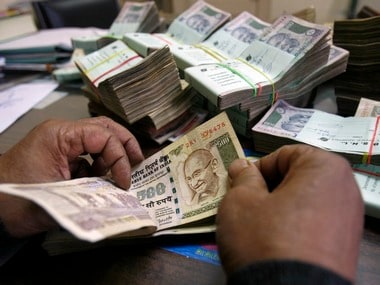The Congress party’s apparent softening of stance on the Goods and Services Tax (GST), if translates into action, would mean that Prime Minister Narendra Modi’s Brahmastra—linking the critical nature of the biggest tax reform to larger national interest–isn’t a miss. [caption id=“attachment_2385600” align=“alignleft” width=“380”]  Representative Image. Reuters[/caption] A report in Times of India on Monday quoted Congress party’s deputy leader of opposition in the Rajya Sabha, Anand Sharma, as saying that his party may not insist on inclusion of the 18 per cent GST rate in the bill. The party will settle if the government ‘suggests ways for legal ringfencing of the rate,’ Sharma said. This statement is significant since inclusion of the GST rate in the Bill is the only major contention between the BJP and Congress on the issue. There is already a broad consensus on the other two conditions—a joint dispute resolution mechanism and removal of the 1 percent interstate levy—as Congress Vice President Rahul Gandhi has made clear in the past. Just last week, in an interview to the Economic Times, Prime Minister Narendra Modi had launched his Brahmastra of ‘larger national interest’ on the Congress party. Modi termed the opposition of the Congress to the GST as political suicide. “So much so, the obstruction of GST is now not a Lok Sabha issue but has become a Gram Sabha issue! The public in states like UP, Bihar and West Bengal will be the biggest beneficiaries. Therefore, I do not think any political party will try to commit suicide by opposing GST,” said Modi. Clearly, the statement was a clear message to Congress that dragging the GST issue any longer will be counter productive to the party since such a move will damage its image before the middle-class electorate in the form of an anti-development move, giving strength to BJP’s allegation that Congress is resorting to ‘obstructionism’ - not being a proactive opposition for the larger good of the country. Also, the Congress knows that it does not have a strong case to oppose the GST any longer, especially after the Assam, Kerala setbacks and the recent Rajya Sabha elections. Most of the regional parties have given their assent to the GST Bill. The support was evident in the last GST council meeting of state finance ministers too. In these circumstances, Congress is isolated in the GST battle. As _Firstpost_ argued in an earlier article, it is better to give in. To be sure, Congress has still put forward some riders for offering its final consent on the Bill, i.e: working out a legal ringfencing of the rate. This, however, is a relatively easier condition than asking to include the rate in the constitution. The BJP should jump at this opportunity and work out a consensus model to close the issue and get the Bill passed. Even after the passage of the GST amendment, the final roll out will take a long time since state assemblies have to pass the Bill and understand the new concept. For the embattled Congress-camp, it is an opportunity in crisis to win back the confidence of the middle-class voters by presenting its pro-GST stance as a political sacrifice in the larger interest of the economy. The GST is a perfect tool for this. The reform will create a single market, broaden the tax base and help invite more private investments since the prevailing convoluted tax regime is a big turn off for foreigners. Though BJP’s numbers have increased in the Upper House, the reality is Congress’ support remains vital since the constitutional amendment Bill requires 2/3rd of the support the House. A consensus on GST is a win-win for both the BJP and Congress camps.
The Congress party’s apparent softening of stance on the Goods and Services Tax (GST), if translates into action, would mean that Prime Minister Narendra Modi’s Brahmastra—linking the critical nature of the biggest tax reform to larger national interest–isn’t a miss. [caption id=“attachment_2385600” align=“alignleft” width=“380”]  Representative Image. Reuters[/caption] A report in Times of India on Monday quoted Congress party’s deputy leader of opposition in the Rajya Sabha, Anand Sharma, as saying that his party may not insist on inclusion of the 18 per cent GST rate in the bill.
Advertisement
End of Article


)

)
)
)
)
)
)
)
)



